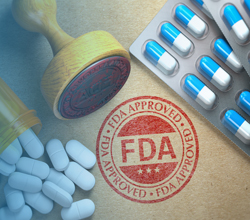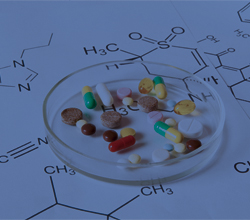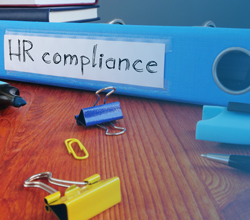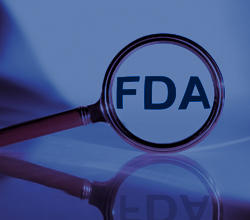
FDA Compliant Handling of Out-of-Trend Results in Pharmaceutical Quality Control
 Kelly Thomas
Kelly Thomas
 90 Mins
90 Mins
Product Id: 702540
This webinar will discuss the FDA requirements and guidelines for investigating Out-of-trend (OOT) results in the pharmaceutical laboratory. It will also cover FDA compliant documentation of OOT, failure investigations, root causes and CAPA.

P&PC, SPC/6Sigma, Failure Investigation, Root Cause Analysis, PDCA, DMAIC, A3
 John E Lincoln
John E Lincoln
 90 Min
90 Min
Product Id: 706963
This webinar is intended to provide guidance regarding the CGMPs on manufacturing methods utilizing the US FDA Production and Process Controls for Drugs and Devices and Statistical Process Controls (SPC) as taught by Drs. Demming and others and required also in the CGMPs and under control of variation process guidance.

Design Control / Ddesign and Development Requirements / Documents Under 21 CFR 820/ ISO 13485 7.3
 John E Lincoln
John E Lincoln
 90 Mins
90 Mins
Product Id: 706923
Proper adherence and documentation of the FDA's Design Control requirements are key to any medical product project's success.

Family Care and Medical Leave in California - Part I
 Jacquiline M Wagner
Jacquiline M Wagner
 90 Min
90 Min
Product Id: 704507
The Family and Medical Leave Act (29 U.S.C. § 2601 et seq)- known as the “FMLA”- was signed into law by President Bill Clinton in 1993 in response to a growing national concern about balancing work and family responsibilities.

Deconstructing EU MDR with Principles of Lean Documents and Lean Configuration
 Jose Mora
Jose Mora
 120 Min
120 Min
Product Id: 706959
The EU MDR is a comprehensive and complex regulation that combines all aspects of placing certain types of medical devices on the EU market into one regulation. It addresses the obligations of economic operators in this role, and provides for extensive databases, clinical requirements, classifications, conformity, and many defined relationships between agencies, member states, and other directives and regulations.
This webinar deconstructs the many parts of this regulation into the elements of lean documents and lean configuration, providing an opportunity to apply these principles as a way to create and maintain flexibility as this and new harmonized standards and regulations emerge.

The New US FDA 21 CFR 820, Quality Management System Regulation (QMSR), Medical Device CGMPs
 John E Lincoln
John E Lincoln
 90 Mins
90 Mins
Product Id: 706961
The US FDA, after years of discussing the harmonization of 21 CFR 820, Device CGMPs (QSR), to the ISO 13485, Device QMS, has finally published their QMSR to replace the previous QSR. On February 02, 2024, they published the final rule in the US Federal Register that revises 21 CFR 820 to include ISO 13485:2016 by reference, called the Quality Management System Regulation (QMSR).

Operational Risk Management Principles
 Stanley Epstein
Stanley Epstein
 90 Min
90 Min
Product Id: 706024
This webinar provides participants with practical guidance in implementing an effective operational risk management system. It will also bring you up to speed on current best practice in the field of managing operational risk in financial institutions. Not only will we examine the details of each of these principles, as well as taking an all-inclusive look and what needs to happen to implement them; we will complete our journey by examining the principles under the harsh light of an actual Case Study in the banking industry.

Drug Labeling and Packaging: Meeting Regulatory Requirements
 Charles H Paul
Charles H Paul
 60 Min
60 Min
Product Id: 706953
The webinar, titled "Drug Labeling and Packaging: Meeting Regulatory Requirements," is a comprehensive exploration of the critical nexus between pharmaceutical labeling, packaging, and regulatory mandates. Over the course of 60 minutes, this session will provide participants with a thorough understanding of the pivotal role that accurate and compliant drug labeling and packaging play in ensuring patient safety and meeting global regulatory standards.

Data Privacy: California Privacy Rights Act (CPRA), Health Information Portability & Accountability Act (HIPAA), and General Data Protection Regulation (GDPR)
 Carolyn Troiano
Carolyn Troiano
 90 Mins
90 Mins
Product Id: 706951
The California Consumer Privacy Act (CCPA) was enacted into law on June 28, 2018 and became effective on January 1, 2020. CCPA provided a variety of consumer privacy rights and the obligations of business related to their storage and sale of personal information.
Voters in California voted to approve Proposition 24, a ballot measure, on November 3, 2020, which created the California Privacy Rights Act (CPRA). The purpose of CPRA was to modify and expand the requirements of the CCPA, thus amending the original act. CPRA is commonly referred to as “CCPA 2.0.”
CPRA ends the ban on providing the CCPA’s consumer privacy rights to a company’s employees. Under CPRA, all employers must respond to requests from employees to access or correct their personal data. Enforcement of CPRA will become effective in July 2023, enabling companies six months to ramp up their efforts to comply with it.
CPRA also extends new protections to consumers residing in California. Those organizations doing business with these consumers are subject, based on defined threshold of operation, to the compliance requirements.

How to Achieve Validation Requirements for a Clean Room Manufacturing Environment
 John E Lincoln
John E Lincoln
 90 Mins
90 Mins
Product Id: 706947
Both the U.S. FDA and EU's MDR expect documented risk-based clean room manufacturing environment per ISO 14644-series, ISO 14698-series (and the old FED-STD 209E).

Optimizing Target Weights for Foods and Beverages
 Steven Wachs
Steven Wachs
 75 Min
75 Min
Product Id: 704366
This training program will elaborate factors affecting the target weight decision and help determine the tolerable risks of under-filling and the costs of over-filling. Attendees will gain an understanding of process stability and process capability concepts and methods for process optimization.

US FDA Medical Device QSR (21 CFR 820) / Quality Management System - current and proposed major changes
 John E Lincoln
John E Lincoln
 90 Min
90 Min
Product Id: 706950
The US FDA/CDRH is proposing to harmonize the current Quality System Regulation (QSR) for medical devices (21 CFR 820) by converging its requirements with requirements used by many other regulatory authorities. ISO 13485, into a new device Quality Management System Regulation (QMSR).

Cybersecurity - The Latest US FDA Requirements
 John E Lincoln
John E Lincoln
 90 Min
90 Min
Product Id: 706949
Cybersecurity is the art of protecting networks, devices, and data from unauthorized access or criminal use. It is the practice of ensuring confidentiality, integrity, and availability of information, and is a rapidly growing problem for industry.

Validation Statistics for Non-Statisticians
 Alan M Golden
Alan M Golden
 60 Min
60 Min
Product Id: 706944
In this program, we will discuss the common statistics tools and techniques used in validation. Through real world examples and interactive exercises, we will demonstrate the basic concepts of statistics and how to apply them to your validation projects. Discussion will center around measures of variance, sample distributions, and expressions of variance. The session will conclude with a discussion of the concept of process capability and using process capability to set acceptance criteria for validation.

Design History File (DHF) Remediation using Principles of Lean Documents and Lean Configuration
 Jose Mora
Jose Mora
 90 Min
90 Min
Product Id: 706942
Design History File (DHF) Remediation using Principles of Lean Documents and Lean Configuration. Does your DHF remediation process resemble the very mess that it is trying to resolve?
The Design History File (DHF) is the objective evidence that a medical device was designed per design control guidance and applicable regulations and standards. While it is retrospective in nature, it is the end result of a process that begins with planning and ends with Design Transfer and has the Device Master Record (DMR) as a deliverable.

Medical Device Cybersecurity Risk Management Training
 Frank Stein
Frank Stein
 3 Hrs
3 Hrs
Product Id: 706560
This webinar will give you a clear structured overview and introduction, into the cybersecurity risk management in relation to the cybersecurity regulation in EU and US and its requirements in the EU and US.

Statistical Methods for Quality Improvement
 Steven Wachs
Steven Wachs
 90 Min
90 Min
Product Id: 705856
This webinar presents an overview of essential quantitative methods for assessing and ensuring product quality. The methods include: Statistical Process Control, Process Capability Assessment, Regression Modeling, Design of Experiments, Hypothesis Testing, and Measurement Systems Assessment.

1099 & W-9 Update - Complying with IRS Information Reporting Guidelines
 Miles Hutchinson
Miles Hutchinson
 90 Min
90 Min
Product Id: 703220
For years the IRS has struggled with the independent contractor and tax collection. In assessing opportunities to close the tax gap (taxes due but not reported or paid), one of the greatest opportunities comes from expanding the information reporting on taxpayers by payors – the 1099. This time-consuming reporting obligation can be streamlined in a number of ways. Join us to learn more…

Risk Management for Medical Devices per ISO 14971 2019
 Jose Mora
Jose Mora
 60 Min
60 Min
Product Id: 706924
ISO 14971:2019 has introduced significant changes including benefit, reasonably foreseeable misuse and state of the art, as well as the management of risks associated with medical devices. It is important to be aware of these changes as technology continues to emerge.

How to Comply with FDA Regulations for Tobacco-Related Products: Computer System Validation, 21 CFR Part 11, & Data Integrity
 Carolyn Troiano
Carolyn Troiano
 90 Min
90 Min
Product Id: 706937
This webinar is intended for those working in the FDA-regulated tobacco and related industries, including e-liquids (vapor), e-cigarettes, cigars, and smokeless tobacco products. Functions that are applicable include research and development, manufacturing, Quality Control, distribution, clinical testing and management, adverse events management and post-marketing surveillance. You should attend this webinar if you are responsible for planning, executing or managing the implementation of any system governed by FDA regulations, or if you are maintaining or supporting such a system.


























